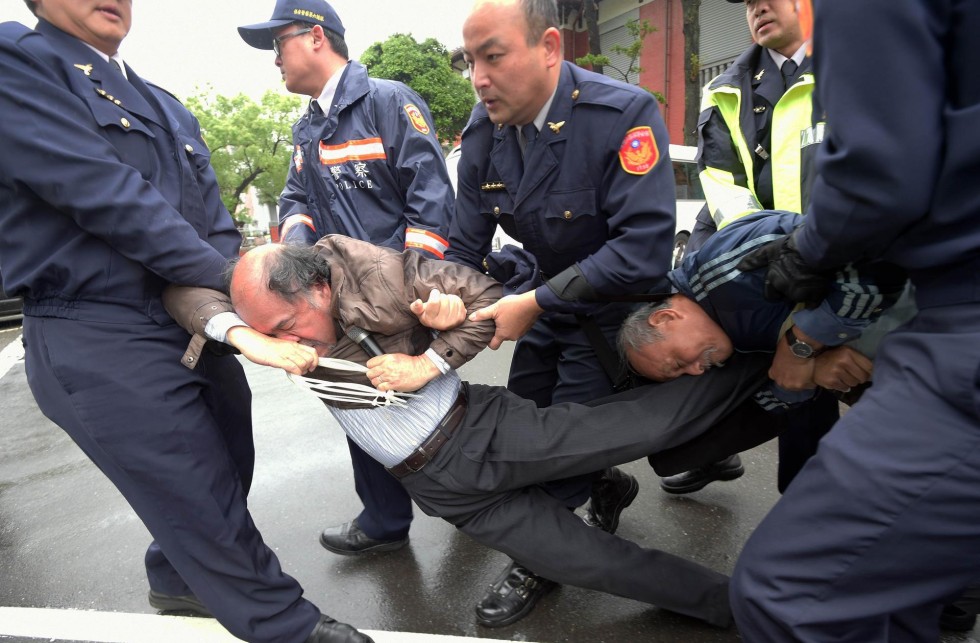- Joined
- Jun 9, 2013
- Messages
- 347
- Points
- 0
Taiwanese protesters scuffle with police over mainland's controversial M503 air route
Demonstrators resist police as they express anger over new flight path
PUBLISHED : Saturday, 28 March, 2015, 1:13am
UPDATED : Saturday, 28 March, 2015, 5:30am
Agence France-Presse in Taipei

Police remove pro-independence activists staging a sit-in at the entrance of the parliament building in Taipei on Friday. Photo: AFP
Taiwanese protesters scuffled with police for the second day in a row on Friday ahead of the mainland's planned launch of a controversial new flight route that has sparked security concerns.
The route over the Taiwan Strait is due to be inaugurated tomorrow despite the backlash over security fears.
Dozens of demonstrators tussled with police as they tried to enter the parliament in Taipei and then sat on the ground at the building's entrance until they were removed.
On Thursday, protesters and police scuffled at the headquarters of the Mainland Affairs Council, Taiwan's top mainland policymaking body.
The demonstrations come as fears grow over increasing influence from Beijing.
"We will continue to protest until [the mainland] retracts the M503 route," protest spokesman Lin Yu-lun said.
M503 is one of four routes that would take planes over the Taiwan Strait from Zhejiang province and the cities of Fuzhou and Xiamen in Fujian province.
Beijing says they are necessary to ease congestion on an existing flight path. But Taiwan's authorities have slammed the unilateral move, saying it poses a potential air defence threat.
The route was postponed from March 5 because of the objections. Beijing later slightly modified M503 but is pressing ahead with the launch.
The other three routes have been indefinitely postponed, according to Taiwan's Civil Aeronautics Administration.
The Mainland Affairs Council has said negotiations with the mainland over the routes will help safeguard the island's aviation security. It has also said that the mainland's fighter jets will not use the routes.
Beijing considers self-ruled Taiwan a part of its territory awaiting reunification - by force if necessary.
Ties have improved markedly since the island's president, Ma Ying-jeou, of the Beijing-friendly Kuomintang came to power in 2008, but some fear Taiwan is becoming too dependent on the mainland.
Last week, campaigners gathered to mark the anniversary of the student-led "sunflower movement", which occupied Taiwan's parliament for three weeks last year over a trade pact with the mainland.
